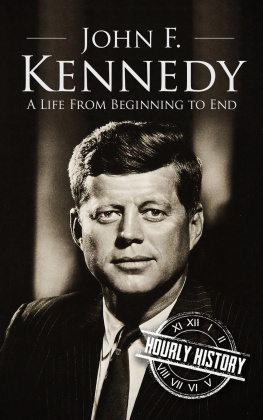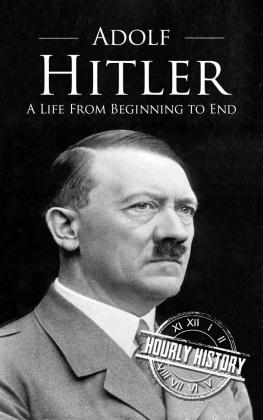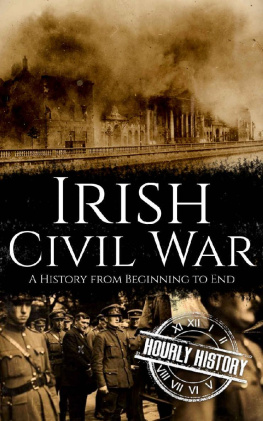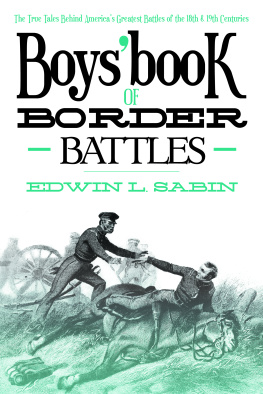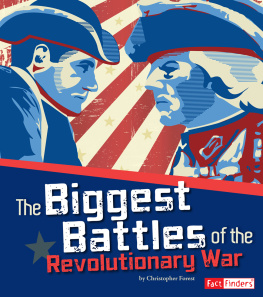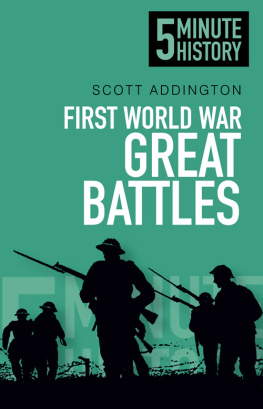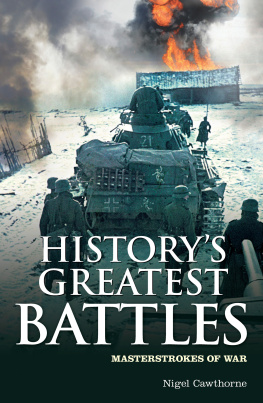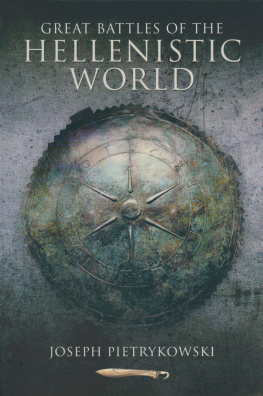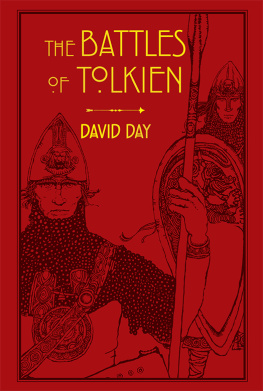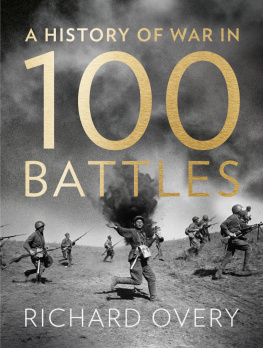Hourly History - World War II Battles: The Greatest Battles that Defined World War II
Here you can read online Hourly History - World War II Battles: The Greatest Battles that Defined World War II full text of the book (entire story) in english for free. Download pdf and epub, get meaning, cover and reviews about this ebook. year: 2019, genre: History. Description of the work, (preface) as well as reviews are available. Best literature library LitArk.com created for fans of good reading and offers a wide selection of genres:
Romance novel
Science fiction
Adventure
Detective
Science
History
Home and family
Prose
Art
Politics
Computer
Non-fiction
Religion
Business
Children
Humor
Choose a favorite category and find really read worthwhile books. Enjoy immersion in the world of imagination, feel the emotions of the characters or learn something new for yourself, make an fascinating discovery.

- Book:World War II Battles: The Greatest Battles that Defined World War II
- Author:
- Genre:
- Year:2019
- Rating:5 / 5
- Favourites:Add to favourites
- Your mark:
- 100
- 1
- 2
- 3
- 4
- 5
World War II Battles: The Greatest Battles that Defined World War II: summary, description and annotation
We offer to read an annotation, description, summary or preface (depends on what the author of the book "World War II Battles: The Greatest Battles that Defined World War II" wrote himself). If you haven't found the necessary information about the book — write in the comments, we will try to find it.
Hourly History: author's other books
Who wrote World War II Battles: The Greatest Battles that Defined World War II? Find out the surname, the name of the author of the book and a list of all author's works by series.
World War II Battles: The Greatest Battles that Defined World War II — read online for free the complete book (whole text) full work
Below is the text of the book, divided by pages. System saving the place of the last page read, allows you to conveniently read the book "World War II Battles: The Greatest Battles that Defined World War II" online for free, without having to search again every time where you left off. Put a bookmark, and you can go to the page where you finished reading at any time.
Font size:
Interval:
Bookmark:
Copyright 2019 by Hourly History.
All rights reserved.
Copyright 2018 by Hourly History.
All rights reserved.
When Winston Churchill became prime minister of Great Britain on May 10, 1940, he was embarking upon a perilous time in his political career and in his nations history. Germany had already conquered Poland, Norway, and Denmark and was on its way to overpowering Belgium, Luxembourg, the Netherlands, and France. Only the British remained as an obstacle to Hitlers goal of dominating Europe, and the Fuhrer was assured that no one could stand in his way.
Hermann Goering had promised that his Luftwaffe would bring England to submission by bombing the nation relentlessly, setting the buildings on fire and teaching the English that they were foolish to think that they could stand against the might of the Third Reich. The English public, Goering promised, would be terrified and would force its government to submit to whatever terms the Germans offered in exchange for peace and an end to the bombing. That was how the Germans expected the story to unfold.
But the British were not interested in peace on German terms. Well aware that, with France having surrendered to Germany and the United States intent on remaining neutral in what they regarded as a European conflict, the British stood alone, the people took courage from Churchills words, We shall never surrender.
The Germans would test that boast as their planes crossed the English Channel to pound the British with bombs. Taking refuge in air raid shelters became a way of life for the beleaguered civilians, and on one night, the London Underground provided protection for more than 170,000 people. The toll on human life was punishing; between July 1940 and May 1941 when the Battle of Britain officially ended, more than 40,000 civilians had lost their lives. The streets of London were crowded with the rubble from the buildings that had been damaged in the bombing raids. How could they endure such devastation?
But a surprising thing happened on the way to the German domination of the air. The Royal Air Force, alerted by radar when the planes were approaching, flew up into the sky to meet the enemy and Goerings boast was proven to be hollow. Never in the field of human conflict, Churchill said, has so much been owed by so many to so few.
The Germans were convinced that the RAF was at the end of its ability to meet the Luftwaffe in battle, but somehow, the pilots continued to do so. The Battle of Britain, the first military engagement fought entirely between enemy air forces, would be the first defeat that the Germans would suffer.
But the Battle of Britain was more than a military encounter. It was a test of the human will. Before the Germans began their bombing campaign, many English children were sent from London for their own safety. Some were sent to the countryside, where the threat of bombing was less. Some were even sent abroad, to Canada and the United States. But Queen Elizabeth of England set the tone when, after some people said that she and King George VI should go to Canada to be safe, answered that The children will not leave unless I do. I shall not leave unless their father does, and the King will not leave the country in any circumstances whatever.
It was that spirit that demonstrated the resolve of the British people. They would not give in. As bombs rained down from the sky during the day and the night, as fires blazed in the streets and homes exploded and landmarks were struck, as people crowded the shelters and the Underground seeking refuge, they did not surrender. Had the people been less resilient, perhaps the government would have been forced to accept Hitlers terms and seek peace at any price.
Instead, the people of Great Britain accepted the fact that freedom came with a price tag. Churchill had not minimized the threats that they faced, nor had he sugar-coated the task that lay before them. But civilization was worth saving, and if the Nazis were allowed to win, they would enter a new Dark Age. Of this, Churchill was certain, and he did not mince words as he made the case for Great Britain to rise to the occasion. Therefore, Churchill, who was a historian as much as he was a politician, summoned his people to accept their destiny. Let us therefore brace ourselves to our duties, and so bear ourselves that, if the British Empire and its Commonwealth last for a thousand years, men will say, This was their finest hour.
The British could have been forgiven for believing that, despite the German invasion of Poland beginning at 4:45 am on September 1, 1939, and Prime Minister Chamberlains declaration of war on September 3, nothing much was going to happen. The declaration of war against Germany was followed by air raid sirens, indicating that attack was imminent, but the warnings proved to be a mistake. Later, that would not be the case, but in 1939, war seemed unreal. Nonetheless, the British people prepared for battle, sending their children to the country so that they would be safe from the expected Luftwaffe bombing.
The people of Poland were relieved at the declaration of war that followed the German invasion of their country, convinced that they would be rescued from the Nazi invaders. But as the Germans drove further from the west, soon to be followed by the Soviet invasion from the east, the Polish people realized that the Allied declaration of war was an arsenal of words only. Approximately three million Polish citizens would be sent to Germany to work as slaves; the Germans regarded Slavs as racially inferior and intended to eradicate the population. The country of Poland would provide Lebensraum or living space for the Germans so that they could expand their borders. Occupied Poland became the site of the deadly concentration and extermination camps run by the Nazis; names such as Auschwitz, Birkenau, Treblinka, and Sobibor became synonymous with death as the Nazis pursued their annihilation of Jews and others.
Poland was not a magnet for Allied defense, despite the British promise to defend the nation. But France was, and everyone knew that France was a German target. The Germans had never forgiven the French for the humiliating terms that had been inflicted on Germany at the end of World War I. The two countries, longstanding adversaries, viewed one another as natural foes. Once again, they would go to war.
So it was that the British Expeditionary Force began to arrive in France on September 4, but the build-up of troops provided no aid to the Poles. On September 12, 1939, the British and French Supreme War Council met to decide that the Allies would end their offensive operations in order to fight a defensive war. The British sent four divisions consisting of 158,000 men with 25,000 vehicles; it was a small force to mount against the Nazis, but the French were confident that their well-defended Maginot Line along the border between France and Germany would keep Hitlers armies from invading.
The map of Europe was swiftly changing as the Soviet Union, performing as agreed in the Non-Aggression Pact it had signed with Germany, occupied Estonia, Latvia, and Lithuania and defeated Finland. But as 1939 came to an end, war seemed to be something that was happening to other countries, not to the English.
Font size:
Interval:
Bookmark:
Similar books «World War II Battles: The Greatest Battles that Defined World War II»
Look at similar books to World War II Battles: The Greatest Battles that Defined World War II. We have selected literature similar in name and meaning in the hope of providing readers with more options to find new, interesting, not yet read works.
Discussion, reviews of the book World War II Battles: The Greatest Battles that Defined World War II and just readers' own opinions. Leave your comments, write what you think about the work, its meaning or the main characters. Specify what exactly you liked and what you didn't like, and why you think so.

